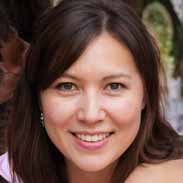Chapter 14- Late Adulthood: Body and Mind – Flashcards
Unlock all answers in this set
Unlock answersquestion
Ageism
answer
A form of prejudice in which people are categorized and judged solely on the basis of their chronological age.
question
Three categories of the aged
answer
Ageism lumps everyone over 60 together, ignoring the differences among them. There is the young-old, the old-old, and the oldest-old which is based not exclusively on age, but also on health, well-being, and financial security.
question
Young-old
answer
Healthy, vigorous, financially secure older adults (generally, those aged 60 to 75) who are well integrated into the lives our their families and communities. The largest group, 70% in U.S.
question
Old-old
answer
Older adults (generally, those aged 75 to 85) who suffer from physical, mental, or social deficits. They suffer notable losses in body, mind, or social support although they are still able to care for themselves and others. About 20% in U.S.
question
Oldest-old
answer
Elderly adults (generally, those aged 75 to 85) who are dependent on others for almost everything, requiring supportive services such as nursing-home care and hospital stays. They are at risk for illness and injury, unable to live safely alone. Half live with a spouse or adult child, other half in nursing homes or hospitals. About 10% in U.S.
question
Maximum life span is said to be ______ years for humans.
answer
122
question
Primary aging
answer
The universal and irreversible physical changes that occur to all living creatures as they grow older.
question
Secondary aging
answer
The specific physical illnesses or conditions that become more common with aging but result from poor health habits, genetic vulnerability, and other influences that vary from person to person.
question
dependency ratio
answer
A calculation of the number of self-sufficient, productive adults compared with the number of dependents (children and elderly) in a given population.
question
population pyramid
answer
A graphic representation of population as a series of stacked bars in which each age cohort is represented by one bar, with the youngest cohort at the bottom.
question
centenarian
answer
A person who has lived a 100 years or more.
question
dementia
answer
Irreversible loss of intellectual functioning caused by organic brain damage or disease. Dementia becomes more common with age, but it is abnormal and pathological even in the very old.
question
Information-processing approach
answer
Separates cognition into 4 steps: input (sensing), storage (memory), programming (control processes), and output.
question
Input (sensing)
answer
reduced sensory input impairs cognition. The brain automatically fills in missed sights and sounds; as a result, vital information may be distorted or lost without the person realizing it. It is unclear if the underlying problem with sensory input is 1) in the brain (the input is not processed correctly) or 2) directly in the senses (the input never reaches the brain).
question
Storage (memory)
answer
Some aspects of memory remain strong throughout late adulthood, while others do not. Vocabulary (semantic memory) is good but memory for events (episodic memory) declines. Source amnesia- forgetting the source a specific fact, idea, or conversation- is common.
question
Working memory
answer
Working memory (short-term memory) includes the information that the brain holds at a given moment, allowing processing and new ideas based on recent information. Older individuals take longer to perceive and process the sensations they experience, therefore the working memory is reduced. Older people are notable less adept at multitasking, which requires screening out distractions and inhibiting irrelevant thoughts while focusing on two or more relevant tasks. A slower brain cannot handle too much at once. Iflder people can take their time and concentrate, their working memory seems as good as ever.
question
Programming (control processes)
answer
Older adults are impaired in controlled cognitive processes, which is not an easy problem to fix.
question
Control processes
answer
Are the various methods used to regulate the analysis and flow of information. They include memory and retrieval strategies, selective attention, and rules or strategies for problem-solving. Usually depend on the pre-frontal cortex (necessary for planning, inhibiting unwanted responses, and coordinating thoughts). Older people often stick to preconceived ideas rather than change their minds. The elderly rely on prior knowledge, general principles, familiarity, and rules of thumb in their decision making. This is called a top-down strategy (deductive reasoning). It is not necessarily wrong, but it is limited. One control process is retrieval which is crucial in that memory problems usually involve recall, not storage. That is why control strategies, such as retrieval strategies, are very important.
question
Cognitive output
answer
The Seattle Longitudinal Study measured the output of all five primary mental abilities: verbal meaning, spatial orientation, inductive reasoning, number ability, and word fluency - all declined beginning at about age 60. Gradual decline in output in late adulthood, however health and training are better predictors of cognition than age. Cognitive abilities fade along with health. Training can improve cognitive abilities.
question
Terminal decline
answer
A faster loss of cognitive ability in the final years of their lives.
question
Wisdom
answer
life review (perspective on living), the ability to put aside one's personal needs (as in self-actualization), and a self-reflective honesty (as in integrity) are considered wisdom. It is a social virtue.
question
In Schaie's Seattle Longitudinal Study, the cognitive decline of late adulthood was most evident in which of the following?
answer
processing speed



